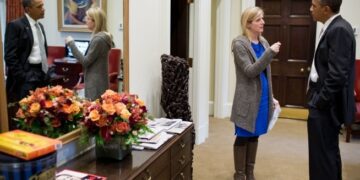By John F. Di Leo -
Vice President Pence has spoken out on January 6, 2021. He announced that President Trump said that Pence had the power to overturn the election that day, and that he should have done so… But he didn’t do it.
Vice President Pence is winning considerable points with the mass media and the RINOs for saying that President Trump was wrong; Pence, in fact, did not have the power to overturn the election.
In truth, this is a typical example of the Left, and of the Left’s enablers, capitalizing on an example when President Trump was correct in fact, but used the wrong words. President Trump is often clumsy with his wording.
Of course, Vice President Pence did not have the power to overturn an election. In a republic, no one does. Overturning an election is a coup d’état; we would all hope that America will never have need of such measures.
But, however clumsy his wording, that is not what President Trump had expected Pence to do. President Trump rightly expected Pence to use every legal power of his office to ensure that the true will of the people was reflected in the next inauguration. Period.
President Trump is not alone in his confidence that Joe Biden, a dementia patient who hid in his basement the entire campaign, could not possibly have been legitimately elected by the majority of citizens in the United States of America in 2020.
That is not to say that the election couldn’t have been stolen. Almost any election can be stolen, especially if you remove all of the safeguards that normally ensure an honest vote and an honest count.
Consider: What has happened, in recent years?
- Motor Voter laws automatically register people on the voting rolls, enabling them to vote, regardless of citizenship status or felony status, the two most common disqualifiers for a legitimate count in most states (and remember, we have many tens of millions of non-citizens who drive).
- More and more cities, counties, and states either refuse to allow voter roll clean-up to remove the dead, the moved-away, and the fictional from the lists, or, worse, allow same-day registration that does an end run around the very concept of such voting rolls.
- Numerous states took advantage of the COVID-19 "pandemic" to scare people out of voting in person at polling places, and to authorize mass-mailings of ballots to anyone on any list, in many cases, multiple times. Some states even allowed people to use their home printer and make up their own ballots.
- None of these expansions of ballot access were matched with any kind of commensurate controls. For example, the absentee ballot process traditionally required a formal request by the voter, along with photocopies of identification or similar verification methods to ensure that the mail-in ballot was cast by the correct person, in the absence of a human interaction in a polling place. These measures were not used with mail-in ballots; the 2020 mail in election was almost completely uncontrolled and unguarded.
As a result, at least 20 million more ballots were alleged to have been cast in 2022 then statistics would expect… quite possibly, many more than that.
This is just a short listing of a few of the reasons to cast doubt on the 2020 election. There are dozens more types of vote fraud that certainly occurred, the only question is, in what numbers. Were these dozens of methods of fraud sufficient to change the results?
Individually… some were. But taken together… of course they were.
The presidency is chosen in a different manner than any other elected position in America. And this system has changed slightly – only slightly – a few times since the Constitution was written.
We have added the concept of political parties, and made them a part of the process. We abandoned the original idea of the top two vote-getters being elected president and vice president; and decided to have presidents and vice presidents run together as a ticket. We have slightly changed the way that the electors meet, and we have changed the date when the new president is sworn in.
But one thing we have never changed is the fact that the vice president oversees the final delivery of the states’ electors, their acceptance, and their count.
Why? And why does that matter?
Our Constitution is a narrow, tightly focused document. There is nothing extraneous in it. It identifies who has the power to levy taxes, the power to command the military, the power to judge court cases and to appoint diplomats.
It is therefore safe to assume that when one officer or branch has a role to play, that role is an active one, not merely a formality.
The vice president only has a couple of duties besides being ready to step in if a president dies or is impeached. These are not formalities. One of his key duties, for example, is to oversee the senate. Why? Because the Framers expected the vice president to frequently be a tie-breaking vote. The advent of political parties has changed this, so there are far fewer tie-breakers needed than the framers expected, but the power remains, and it is still frequently used.
By the same token, if the vice president was given the duty of supervising the collection of the states 'electors, it can only mean that this is also not a formality, but rather, that he has the power to question those slates, when questions are valid.
Remember, by the time we reached January 6, 2021, it was clear to any observer that there was a huge cloud over the electoral choice of at least seven states. Numerous court cases had arisen, many of which had not been heard, being frequently denied on technicalities or rebuffed by partisan or nervous judges. Multiple state legislatures' committees – including Pennsylvania, Arizona, and Georgia – had already begun holding hearings, identifying huge irregularities, broad enough to cast doubt on the voting results in their respective states.
But there was no structural opportunity for these state legislatures to declare their will throughout that period.
We have been holding elections for 230 years. This was the first time that there were so many allegations of fraud, so much cleare discrepancy between the laws passed by the state legislatures and the administrations of elections by their respective state bureaucracies.
The Left and its lapdogs want the American public to believe that the choice of electors is in the hands of the city and county election boards, the county clerks, and the state and county secretaries of state.
This is completely untrue.
In fact, one element of the Constitution that has never been amended, and therefore stands to this day without alteration, is Article II, Section 1, Clause 2, which declares unequivocally that the selection of electors is to occur in a manner set forth by the state legislatures. Nobody else. Just the state legislatures.
Governors, precinct workers, poll watchers, political parties, news reporters, pop-culture personalities, party hacks and bureaucrats have no role other than what those state legislatures may choose to give them.
And it was clear by January 6 that, in at least several states, the state legislatures should have been given the opportunity to weigh in, and determine for themselves which slates should represent their states.
This was the opportunity for the vice president to act. This should have been Vice President Pence‘s moment.
Not to overturn an election, not to stage a coup… but to prevent an election from being stolen, to prevent a coup from occurring.
All he had to do was to declare what everyone knew: that there was a cloud over certain states' elector slates, and turn the question back to the state legislatures of those states, asking them to either approve or replace the slate of electors that their bureaucrats had sent up for the count.
The Constitution has a provision for what to do if there aren’t enough electors to provide a majority. We might have needed that provision… or, if the states in question acted quickly, we would not have…
But the 2020 election will forever have a cloud on it, not only because of all the vote fraud, but also because a vice president failed to fulfill his constitutional obligation to serve as the one and only final brake on a process that had gone tragically awry.
Normally, in a constitutional republic, it speaks well of a politician when he resists the temptation to exceed his authority. It is therefore tempting to give Vice President Pence the benefit of the doubt in this regard.
But he cannot be let off so easily.
We need to look at the election of 2020 like a medieval war between city-states, in which an enemy has crossed a sea to fight, and has passed over the outer mountain ranges or across the rivers that nature had provided the city-state as protection… and the enemy has finally approach the city limits, where the city had a fortress wall surrounded by a deep moat.
Vice President Pence was that last line of defense. He was to govern the wall around the city…
And instead of holding firm to protect his city against the invaders… Vice President Pence threw down his sword, opened the gates, and welcomed them in.
Why? Apparently because, after all this, the beautiful stone walls and rod iron portcullises of this fine city were just too pretty to see them damaged by arrows and battering rams. Appearances, in the end, were more important to him than the risk of a corrupt enemy taking control of our government.
Copyright 2022 John F Di Leo
John F. Di Leo is a Chicagoland-based trade compliance trainer and transportation manager, writer and actor. A one-time county chairman of the Milwaukee County Republican Party, he has been writing regularly for Illinois Review since 2009.
A collection of John’s Illinois Review articles about vote fraud, The Tales of Little Pavel, and his 2021 political satires about current events, Evening Soup with Basement Joe, Volumes One and Two, are available, in either paperback or eBook, only on Amazon.
Don’t miss an article! Use the free tool in the margin to sign up for Illinois reviews free email notification service, so that you always know when we publish new content!








